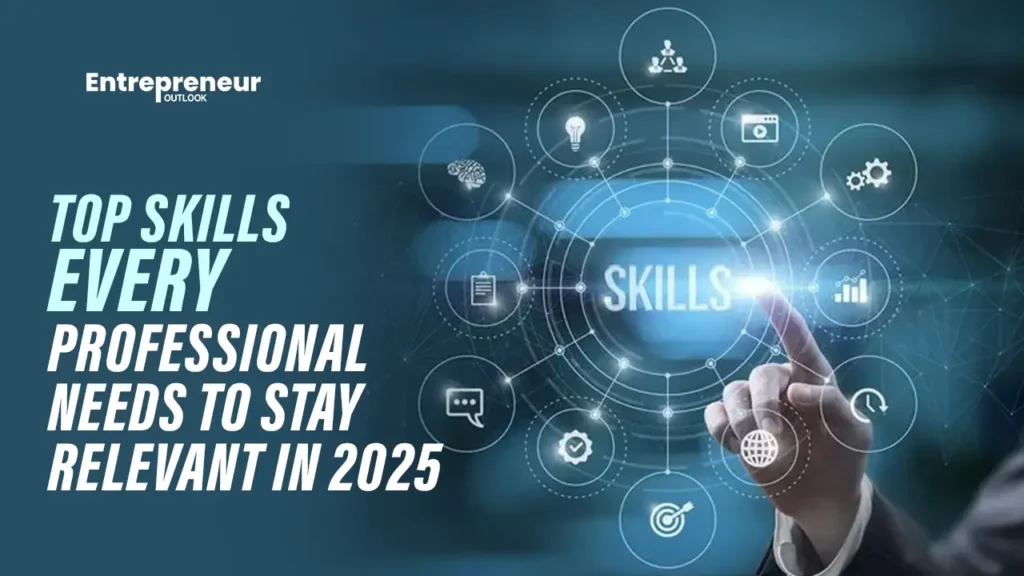The professional world is evolving at a faster pace than ever before. With rapid technological advancements, changing workplace expectations, and the rise of global opportunities, staying relevant in 2025 will demand much more than just domain expertise. Professionals must constantly learn, adapt, and equip themselves with the right mix of technical, digital, and interpersonal skills to thrive in an increasingly competitive landscape. This blog explores the top skills every professional should focus on in 2025 to remain future-ready and highlights how structured learning avenues, such as IIM courses, can support this growth journey.
Introduction: Why Skills Matter More Than Ever
In today’s workplace, having a degree is no longer enough. Employers now look for professionals who can adapt quickly, solve complex problems, and contribute to innovation. Upskilling has become the new norm, and those who fail to upgrade their skillsets risk being left behind.
This is where structured programs like IIM courses prove invaluable. These programs are designed to equip working professionals and aspiring leaders with both hard and soft skills that align with the demands of modern industries. From leadership and strategy to analytics and digital transformation, such courses ensure professionals remain relevant in their chosen fields.
1. Digital Literacy and Tech-Savviness
As industries continue to adopt digital-first approaches, every professional—irrespective of their field—must develop strong digital literacy. This doesn’t mean becoming a programmer, but rather understanding digital tools, platforms, and processes that streamline work.
Key areas include:
- Familiarity with collaborative tools (Slack, Trello, Microsoft Teams).
- Understanding data security and online safety.
- Basic exposure to emerging technologies like AI, cloud computing, and automation.
2. Data-Driven Decision Making
Organizations rely on data more than ever before to make strategic choices. Professionals who can interpret, analyze, and apply insights from data are more valuable to their teams and employers.
Essential skills to focus on:
- Data visualization with tools like Tableau or Power BI.
- Basic statistical understanding.
- Ability to derive actionable insights from raw data.
In 2025, data literacy will be as important as communication skills once were.
3. Emotional Intelligence (EI)
As workplaces become more global and diverse, emotional intelligence has emerged as a cornerstone of professional success. EI enables professionals to collaborate effectively, resolve conflicts, and inspire teams.
Emotional intelligence includes:
- Self-awareness and empathy.
- Effective communication.
- Relationship management and leadership.
A high EI not only improves workplace culture but also sets professionals apart in leadership roles.
4. Adaptability and Resilience
Change is the only constant in today’s corporate landscape. Economic shifts, technological disruptions, and unexpected challenges demand professionals who can adapt quickly.
How to build adaptability:
- Embrace continuous learning.
- Stay open to new tools, processes, and work cultures.
- Develop resilience by viewing challenges as opportunities for growth.
In 2025, the professionals who can pivot easily will lead the way.
5. Leadership and People Management
Even in an era dominated by technology, leadership remains a timeless skill. Employers seek professionals who can inspire teams, resolve conflicts, and drive results. For aspiring managers, building leadership skills is critical to advancing careers.
Ways to build leadership skills:
- Take ownership of projects and initiatives.
- Develop skills in delegation, coaching, and mentoring.
- Focus on communication and collaboration in team settings.
Structured learning avenues, such as leadership-focused programs offered by top institutions, can significantly enhance these capabilities.
6. Critical Thinking and Problem-Solving
Complex challenges require sharp problem-solving skills. Critical thinking helps professionals approach problems logically, evaluate options, and design effective solutions.
Practical ways to develop this skill:
- Practice scenario-based exercises.
- Engage in brainstorming sessions.
- Learn structured frameworks for problem-solving, like design thinking.
Employers consistently rank critical thinking among the top skills they seek in professionals.
7. Cross-Cultural Communication
Globalization has blurred geographical boundaries, making cross-cultural communication a vital skill. Professionals must be sensitive to cultural nuances while collaborating with international teams.
To strengthen this skill:
- Learn the basics of cultural etiquette and workplace practices.
- Practice active listening to bridge communication gaps.
- Develop confidence in English and other global languages, if required.
8. Innovation and Creativity
Innovation is no longer restricted to R&D teams. Today, every professional is expected to think outside the box, suggest improvements, and bring fresh perspectives. Creativity helps organizations remain competitive and adapt to changing markets.
How to boost innovation skills:
- Participate in brainstorming workshops.
- Encourage open dialogue in teams.
- Stay curious and explore emerging trends in your field.
9. Lifelong Learning Mindset
The workplace of 2025 will reward professionals who never stop learning. Upskilling and reskilling are now career essentials. Whether it’s through online certifications, workshops, or immersive executive programs, staying relevant demands a commitment to lifelong learning.
10. Networking and Collaboration
Strong professional networks provide access to opportunities, mentorship, and industry knowledge. Equally important is the ability to collaborate effectively within teams.
Simple practices to adopt:
- Attend industry events and webinars.
- Use LinkedIn actively to share insights and connect with peers.
- Work on team projects to strengthen collaboration skills.
Conclusion: Staying Ahead in 2025 and Beyond
The year 2025 will not just reward those who have technical knowledge, but also those who possess a balanced mix of interpersonal, analytical, and adaptive skills. Digital literacy, emotional intelligence, problem-solving, and leadership will define success in the coming years.
For professionals committed to career growth, structured learning opportunities such as IIM Certificate Courses can provide the right platform to stay ahead. These programs are designed to align with industry needs, empowering professionals to embrace change, unlock their potential, and stay relevant in a rapidly evolving world.
Must Read:



